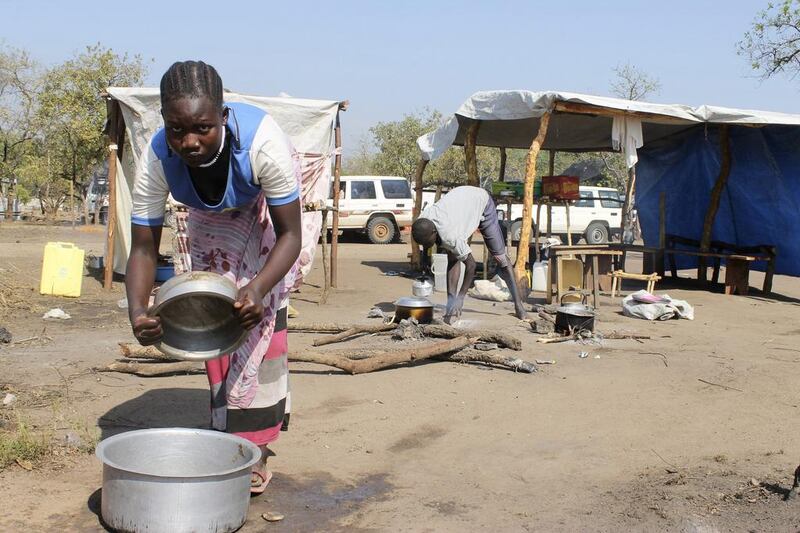BIDI BIDI CAMP, Uganda // “I don’t want to go back,” James Issac declared, just minutes after becoming a refugee. “I don’t want to die.”
For two days, the slender 30-year-old from South Sudan’s Equatoria region navigated his way out of civil war, riding a motorcycle along dirt roads and avoiding government soldiers who, according to other refugees, have shot at civilians.
Just before he left South Sudanese soil, Mr Issac passed a group of ragtag rebel soldiers and crossed a rickety bridge into Uganda, and safety.
“I am happy,” he said, as Ugandan soldiers searched his belongings for contraband. “There are no problems here.”
Mr Isaac is one of 440,000 people who have fled South Sudan’s spiralling conflict into Uganda this year alone, creating some of the world’s largest refugee camps in just six months’ time.
More than one million refugees have fled South Sudan, spilling across borders in East Africa as the international community warns that the conflict and its ethnic violence could destabilise the region.
Since fighting erupted in South Sudan’s capital, Juba, in July and left a peace agreement in tatters, the world’s youngest country has experienced ethnic cleansing and teeters on the brink of genocide, according to the United Nations.
Those fleeing have turned Uganda’s north-west from an empty bushland into a sprawling complex of refugee settlements. The largest, Bidi Bidi, is a pop-up city that holds roughly 260,000 people. Last week the UN announced the Bidi Bidi camp had stopped taking new arrivals because it was full, and began directing South Sudanese to nearby sites.
The refugees “were in critical condition. Bullets remaining in their legs. Others had come with parts amputated. Others were severely bleeding,” recalled Rufaaaya Asiyati, a nutrition specialist working at the border crossing for the Ugandan government.
Roughly 20 per cent of those under 5 years old are severely malnourished, she said. Most of the refugees are women and children.
When the refugees arrive in settlements set up by the UN, some like 18-year-old Harriet Guo are alone and must fend for themselves. The refugees are given supplies to build shelters and must set them up themselves.
Like others in the camp, Ms Guo tells stories of brutal violence that forced her to flee South Sudan.
“There is war there, and here there is peace,” she said.
Many of the refugees come from Yei, where civilians have reported killings, rapes and arrests of civilians based on their ethnicity by government soldiers. Some civilians also said that rebel soldiers would take money or phones from people fleeing to Uganda.
“There are so many people who are shot dead by unknown gunmen, and when you are arrested by armed personnel your whereabouts cannot be found,” said Taban Jackson, a community leader in the Bidi Bidi camp and a former municipal official in Yei.
Unlike other counties in the region, Uganda has embraced the refugees, according to Charlie Yaxley, a spokesman for the UN refugee agency.
“Many Ugandans themselves have previously been refugees, and you typically hear expressions of solidarity from the Ugandan people,” Mr Yaxley said.
Maliki Drakuma is one of them. The town clerk of the local Yumbe government and the owner of a mobile phone shop near the refugee settlements, he said the sudden influx of South Sudanese had brought economic development to the barren region.
He acknowledged that some services have been stressed by the sudden flow of refugees, and police now carry out more patrols.
But Mr Drakuma compared the nearby border to a “two-way street” because he and many other Ugandans had been refugees themselves.
“We would love the refugees to stay for longer,” he said.
* Associated Press





